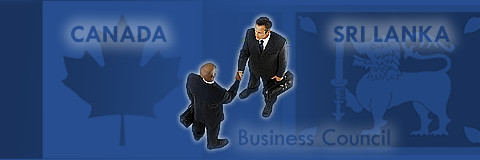
While rising interest rates and diminishing export demand pose challenges to the post-COVID economic resurgence of several Asian nations, the situation takes a different turn for Sri Lanka. Remarkably, amidst the economic pressures brought about by the pandemic and the Ukraine conflict, Sri Lanka, the sole country in the region to default on its official debt, finds itself amidst a period of bright economic growth.
Sri Lanka’s tourism revenue and overseas remittances from its workers have rebounded significantly, marking a promising economic revival. Following a spike in inflation to 70% in September last year, the rate has now receded to a more manageable 6.3% by July this year. This positive momentum has prompted the Central Bank of Sri Lanka to slash its benchmark interest rate by 4.5 percentage points since June. Last year’s default, a consequence of multiple factors depleting the nation’s foreign exchange reserves, was driven by a drop in tourism receipts due to the 2019 Easter Sunday Incident and the subsequent pandemic-induced tourism decline. This setback was compounded by extensive external borrowing, tax reduction measures, and internal political discord, all of which undermined investor confidence and the country’s overall macroeconomic stability.
The year’s initial half witnessed a surge, with tourism yielding nearly $1 billion and remittances touching $3 billion; their momentum is projected to persist in the latter half. While these figures still fall short of pre-COVID benchmarks, prospects remain promising, poised to restore Sri Lanka to its former stature of $4.4 billion in tourism earnings and $7 billion in remittances.
This trajectory stands to substantially aid in managing the nation’s current-account deficit, bolstering macroeconomic equilibrium and fostering growth. Concurrently, businesses relish augmented dollar accessibility and unwavering power provisions, further fortifying the Sri Lankan economy.
“Amidst Sri Lanka’s economic crisis, President Ranil Wickremesinghe, the adept successor to Gotabaya Rajapaksa, swiftly orchestrated a multifaceted strategy to restore stability. He deftly initiated negotiations with the International Monetary Fund for a crucial loan, while garnering interim backing from neighboring allies such as India. In a bold bid to secure the IMF’s favor, Colombo undertook resolute yet essential measures, encompassing fuel and electricity tariff hikes and an expanding the tax base.” Kamil Kuthubdeen Chairman of Global Business Trust LLC Dubai said.
In March, securing the backing of the IMF, Sri Lanka strides confidently forward, with their anticipated current-account deficit at approximately 1.5% of GDP, a prudent and customary threshold for emerging economies reliant on fuel and food imports. A decisive government-led domestic debt restructuring initiative has deftly dispelled uncertainties, notably within the nation’s banking sphere, while negotiations with external creditors for the overhaul of external debt forge ahead in Colombo.
Concurrently, the administration remains steadfast in their reform agenda, exemplified by the strategic privatization thrust encompassing state assets like SriLankan Airlines and Sri Lanka Telecom. The impressive trajectory of the rupee and the stock market stand as a testament to the sanguine reception of recent macroeconomic strides.
As the curtains rise on Sri Lanka’s economic stage, a tale of triumphant resurgence unfolds. The nation, facing the dual upheavals of pandemic and conflict, has orchestrated an inspiring turnaround. Revitalized tourism and remittances, buoyed by deft policy shifts, have breathed life into an ailing economy.
The rhythm of inflation has harmonized, allowing for interest rate reductions that resonate with investor confidence. A visionary approach to harnessing strategic advantages beckons a future where tourism and logistics intertwine to bolster foreign reserves. The symphony of reform plays on, conducted with IMF support and international collaboration, as Sri Lanka’s journey towards lasting prosperity takes center stage.
By: Kamil Kuthubdeen
